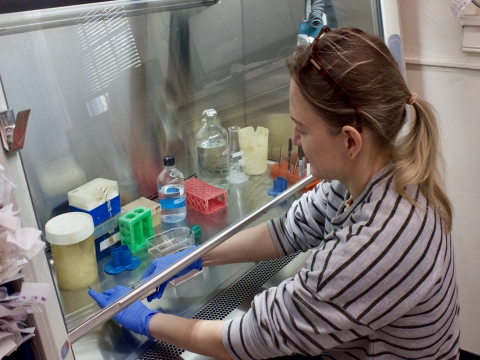FCRH Pre-Health Professions Program: Guidance
FCRH students in the pre-health professions program are involved in much more than simply identifying the correct coursework to fulfill a major or minor. The process of completing a path to professional school often includes academic challenges and changing plans as students learn more about themselves and the type of career they seek. If done correctly, the preparation for professional school includes internships, academic exploration and extracurricular activities aimed at developing personal attributes valued in the health professions.

A student works in conjunction with the FCRH staff to make a number of critical decisions including:
- Choice of career path
- Choice of major and/or minor
- Clinical volunteer work
- Research opportunities
- Study abroad experience
- Science and non-science course selection
- Withdrawal options
- Application completion
- Test preparation and date of admissions test exams
- Interview skills
These decisions are not uniform across the student body, but reflect each student’s experiences and goals. The subtleties of the admissions process demand that each decision be made with the student’s unique personal qualities, strengths and weaknesses in mind. The competition to gain acceptance into medical, dental, veterinary, and other allied health fields is quite rigorous and potential applicants need to become knowledgeable of the factors that will contribute to a successful application.
One of the keys to a successful experience is early and frequent consultation with FCRH staff. Even the strongest pre-health students benefit from guidance and mentoring, beginning in the first year, to develop a successful dossier for health professional school application. Fordham’s pre-health professions program provides opportunities for students to meet both individually and in groups with pre-health program staff and others at Fordham that assist pre-health students throughout their undergraduate years. Group sessions are often class specific (first, sophomore, junior) and are scheduled to help students plan for significant upcoming events, such as taking the MCAT. Students are also encouraged to meet individually with the appropriate pre-health program staff to discuss their progress in attaining acceptance into a health-professional program.